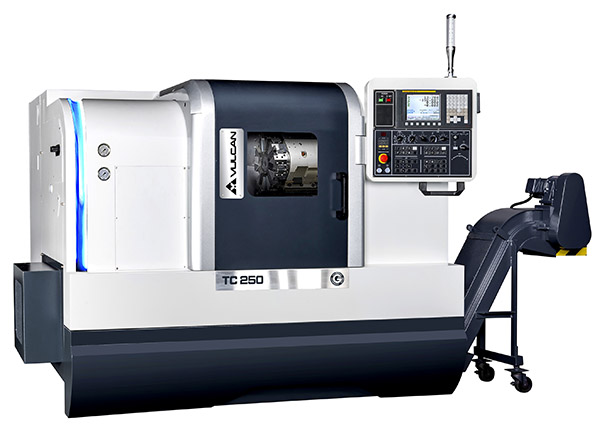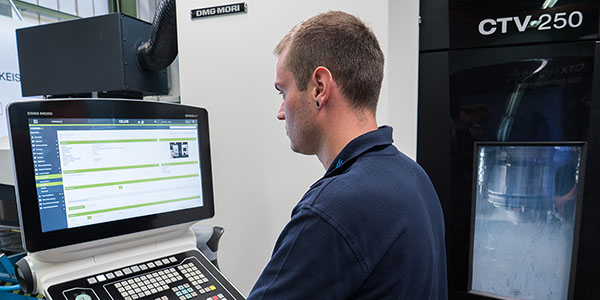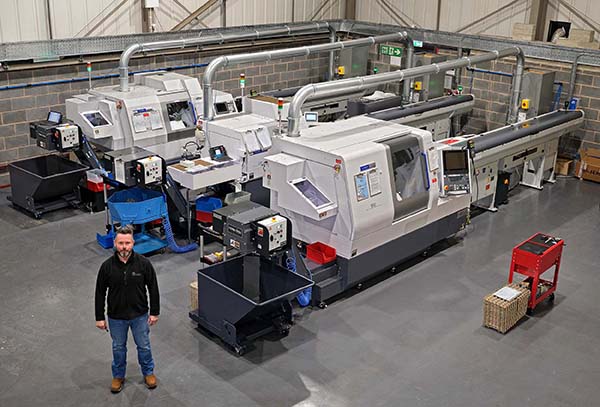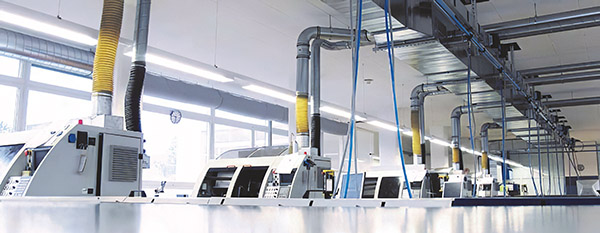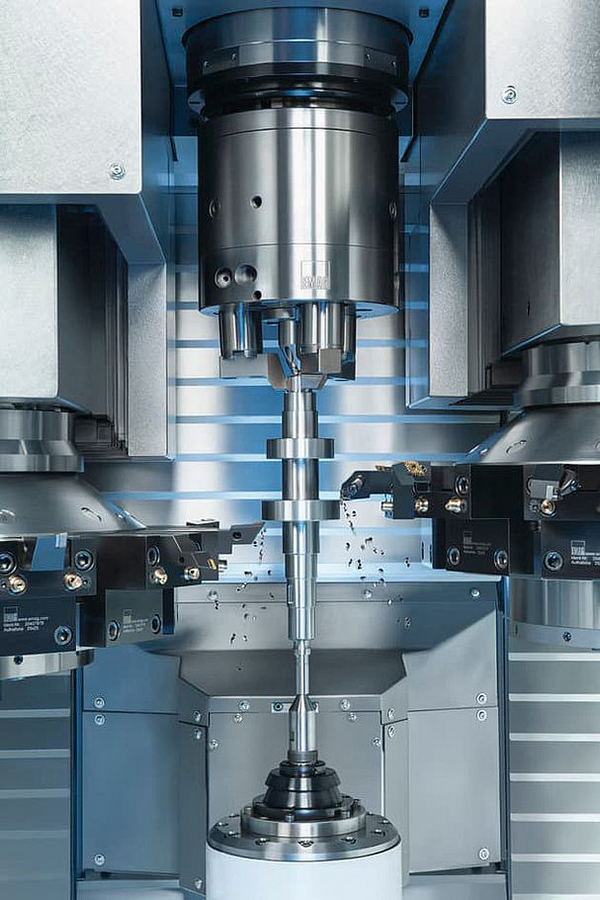
The cost-effective Vulcan series of machines from the Engineering Technology Group (ETG) now includes the new TC250 turning centre, one of the most compact models in the range.
Available in four variants, the TC250 base model is the entry-level cost-efficient option with a single spindle and turret. This machine has a maximum turning diameter of 316 mm, a swing-over-bed of 600 mm and a working length of 435 mm. Working within this area is a spindle with a speed range from 25 to 3500 rpm and a bore of 77 mm diameter.
TC250 models feature a 45° slant-bed construction to ensure maximum stability, while ensuring the effective removal of swarf from the work area.
Adding to the TC250 base variant is the TC250M for manufacturers seeking a reduction in secondary operations through the application of live tooling stations on the turret. The TC250M utilises a servo turret to instigate live tooling with speeds from 25 to 4000 rpm.
Complementing the TC250 and TC250M is the TC250L – a long-bed version that extends Z-axis travel from the standard 490 mm, to 1340 mm. A TC250ML model incorporates both live tooling and an extended bed.
All four machines in the TC250 series are equipped with direct-drive servo motors for smooth and rapid traverse movements of 30 m/min in the X and Z axes, with a cutting feed rate from 0.001 to 500 mm/rev. The standard offering from ETG includes a 3-bar coolant pump, 190-litre capacity coolant tank, programmable tailstock, eight-position hydraulic tooling turret, three-colour beacon light, toolkit, work light, heat exchanger for electrical cabinet, chip conveyor, automatic lubrication system, automatic tool probing and automatic part catcher.
For further information
www.engtechgroup.com






